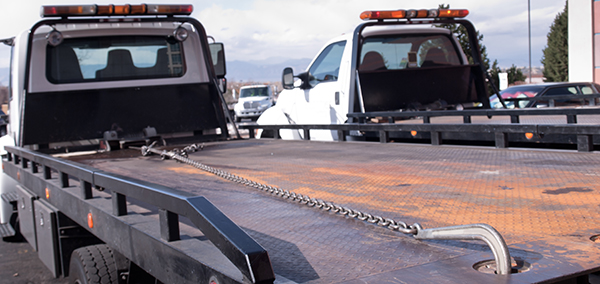While the thought of a tow truck may bring back bad memories for some (cough, cough…parking in the wrong spot on campus for too long and getting caught), the truth is that towing operations in the U.S. play a vital role in keeping our roads safe and our vehicles moving. Many reading this can think of a time that a roadside service provider came to our rescue. Others will remember seeing an abandoned vehicle moved out of the way of traffic. Some business owners will recall being relieved to see a wrecker pull up to help remove an improperly parked vehicle from their premises. If the occasion calls, it is great that tow trucks exist.
Current estimates in the United States show there are around 47,000 car towing businesses registered; employing 110,000 people. This means for insurance agents, there is likely a towing business in your backyard that needs proper insurance coverage. We’ll look at common coverages, what they do, and how we can help you write towing accounts with Arlington/Roe’s markets.
Common coverages involved with a tow truck operation
- Liability – This pays for injury that your tow client may cause to other people for bodily injury or to their property.
- PD aka Physical Damage – (Collision, Comprehensive) If your insured sustains damage to their covered vehicles caused by an accident like a road collision or a falling object, this coverage helps pay for repairs.
- Med Pay – If your tow customer is involved in an accident in their covered vehicle, this coverage can help pay for medical bills for the driver and the passengers.
- UM/UIM aka Uninsured/Underinsured Motorist – Should your client be involved in an accident in a covered vehicle, this important coverage assists in paying your insured and their passenger’s injuries when caused by a driver that did not have, or didn’t have enough, insurance to cover their liability.
- On-Hook Towing – If you are insuring a towing business, think of this as coverage for their customer’s vehicle during the process of being towed.
- Garagekeepers Legal Liability – Also a coverage for a towing businesses’ customer’s vehicle, it helps protect these vehicles while parked at the insured’s property.
Factors that affect insurance pricing
- Drivers – Like all accounts that have auto exposures, the people that operate them greatly contribute to the rate. As the U.S. experiences a driver shortage in nearly all business classes, towing is not immune. Driving record, age, experience and certifications can help increase or decrease the overall risk classification and the corresponding price.
- Vehicles – The age, condition, market replacement value of that vehicle and the number of power units on the schedule all play a role in pricing. Also, the type of tow truck will cause the pricing to vary, whether it be a boom truck, flatbed, wheel-lift, etc.
- Radius – While most towing operations tend to stay local, there are some that will go 300+ miles. When that situation presents, the market becomes more limited.
- Type of towing that they do – Are they doing auto repossessions? Heavy duty? Are they doing disabled vehicle and roadside work? This all matters when assessing risk.
- Loss history – What does the insured’s lost history say about them? Are they careless? Careful? Do they hire drivers with bad records that cause accidents? Do they do the opposite and hire good drivers with Wreckmaster certifications? Do they take great care of their customer’s vehicles or not? A narrative regarding the loss history and an applicable loss ratio makes a lot of difference when evaluating an account.
- Length of time in business – Accounts that have passed the 3-year mark of continuous operations tend to see more favorable pricing, while newer ventures can be priced higher.
How to get started writing a towing account
- Narrative – A short, concise explanation of the items listed above goes a long way in helping us answer questions.
- Application or Acord forms – I know we sound like broken records when asking for complete applications, but we really press this issue so we can make the insurance buying process easier for all parties. With towing risks, be ready for a towing-specific supplemental application.
- Employee list including driver’s MVR info – This will allow the risk to be evaluated and utilized based on its own merits.
- Loss runs – Valued within the last 90 days and 3-5 years prior depending on the company we are looking at.
If you have a towing risk that you’d like to discuss with us, please contact us.
View the printable version of this article here.
